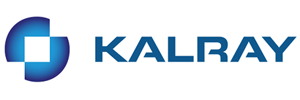State of the art
The current trend for data outsourcing, with the commercial success of services like DropBox or Google Drive (or more
generally all the social networks) is easily understandable: letting someone else host your data frees you from many
technical issues, and this for a nominal price. However, with this trend come many new security challenges:
- How does one guarantee the confidentiality of the data with respect to other users?
- And confidentiality with respect to the service provider?
- What about data integrity or user privacy?
These problems existed before outsourcing became popular, but this particular context intensifies them even more.
The simplest solution to ensure the confidentiality of outsourced data is to encrypt it. This is very easy to implement
as long as outsourced data is a simple backup with no real purpose beyond protecting against data-loss. But the strength
of data outsourcing comes from the additional services offered by the service providers: indexing, sharing,
collaborative work… This requires the service to perform computation on your outsourced data, which is impossible if
it is encrypted, unless Fully Homomorphic Encryption is used!
Fully Homomorphic Encryption allows to perform arbitrary computations on encrypted data, in a sense solving the problem
of secure cloud computing. Unfortunately, existing Fully Homomorphic Encryption schemes are fairly inefficient, with
only asymptotic performance analysis. It is thus difficult to assess how far we are from their practical implementation
in security solutions.
Objectives of the project
The first goal of the project is to select the best FHE solutions that exist and try to improve their performance as
much as possible. This task is closely related with the task of properly selecting parameters and sizes that match an
expected security level.
Then, the main goal of CRYPTOCOMP is to develop a fully automated “source to source” compiler allowing to convert any
function into a “secure” version of this function able to run on encrypted data. The main features of this compiler should be:
- complete transparency of the underlying fully homomorphic encryption scheme used
- definition of low-level computation models (possibly down to levels such as Turing machines or random access machines) suitable for the efficient execution of certain algorithm classes (sorting, signal processing, etc.)
- analysis and regulation of data dependent flow control to allow the service provider access to a given part of the data, and only to this part of the data
- automatic and efficient parallelization (through the compiler) of the cryptographic computations
Expected outcome
By the end of the project, we expect to have a fully functional demonstration platform available. Users will be able to
upload their encrypted private data, locally compile their normal program into a fully homomorphic program and outsource
the execution of this program to the demonstration platform. Once the execution is complete, the user can download the
encrypted result from the platform and decrypt it.
Related presentations & talks
-
🇫🇷
Chiffrement (complètement) homomorphe : de la théorie à la pratique.
Tancrède Lepoint.
Séminaire confiance numérique, Clermont-Ferrand, France, October 09, 2014.
Related publications
-
Stream Ciphers: A Practical Solution for Efficient Homomorphic-Ciphertext Compression.
Anne Canteaut, Sergiu Carpov, Caroline Fontaine, Tancrède Lepoint, María Naya-Plasencia,

Pascal Paillier, Renaud Sirdey.
In FSE 2016, pp. 313-333, 2016.
-
NFLlib: NTT-based Fast Lattice Library.
Carlos Aguilar-Melchor, Joris Barrier, Serge Guelton, Adrien Guinet, Marc-Olivier Killijian, Tancrède Lepoint.
In CT-RSA 2016, 2016.
-
Improved security proofs in lattice-based cryptography: using the Rényi divergence rather than the statistical distance.
Shi Bai, Adeline Langlois, Tancrède Lepoint, Damien Stehlé, Ron Steinfeld.
In ASIACRYPT (1) 2015, 2015.
Best Paper Award
-
Cryptanalysis of the Co-ACD Assumption.
Pierre-Alain Fouque, Moon Sung Lee, Tancrède Lepoint, Mehdi Tibouchi.
In CRYPTO (1) 2015, pp. 561-580, 2015.
-
Cryptanalysis of a (Somewhat) Additively Homomorphic Encryption Scheme Used in PIR.
Tancrède Lepoint, Mehdi Tibouchi.
In Financial Cryptography Workshops 2015, pp. 184-193, 2015.












 Pascal Paillier, Renaud Sirdey.
Pascal Paillier, Renaud Sirdey.